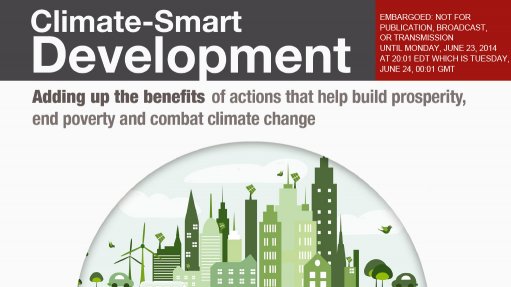
Government policies that improve energy efficiency, waste management and public transport could increase global economic output by more than $1.8 trillion per year, and also save lives, reduce crop losses and tackle climate change, according to new analysis released today from the World Bank and the ClimateWorks Foundation.
The “Adding up the Benefits” report, released in advance of the U.N. Secretary General’s Climate Summit in September, shows the potential economic, health and other gains from scaling up climate-smart policies as well as projects already in place in developing countries like Brazil, India and Mexico. The report strengthens the case for taking urgent action on climate change.
“The report’s findings show clearly that the right policy choices can deliver significant benefits to lives, jobs, crops, energy , and GDP – as well as emissions reductions to combat climate change,” said Jim Yong Kim, President of the World Bank Group. “The September Climate Summit provides a critical opportunity for world leaders to be on the right side of history, to champion ambitious action that not only cuts carbon pollution, but also delivers jobs and economic opportunity.”
The report focuses on five countries – Brazil, China, India, Mexico, and the United States – plus the European Union. It uses a new modelling framework to examine the significant benefits that ambitious climate mitigation policies can generate across the transportation, industry, and building sectors, as well as in waste and cooking fuels.